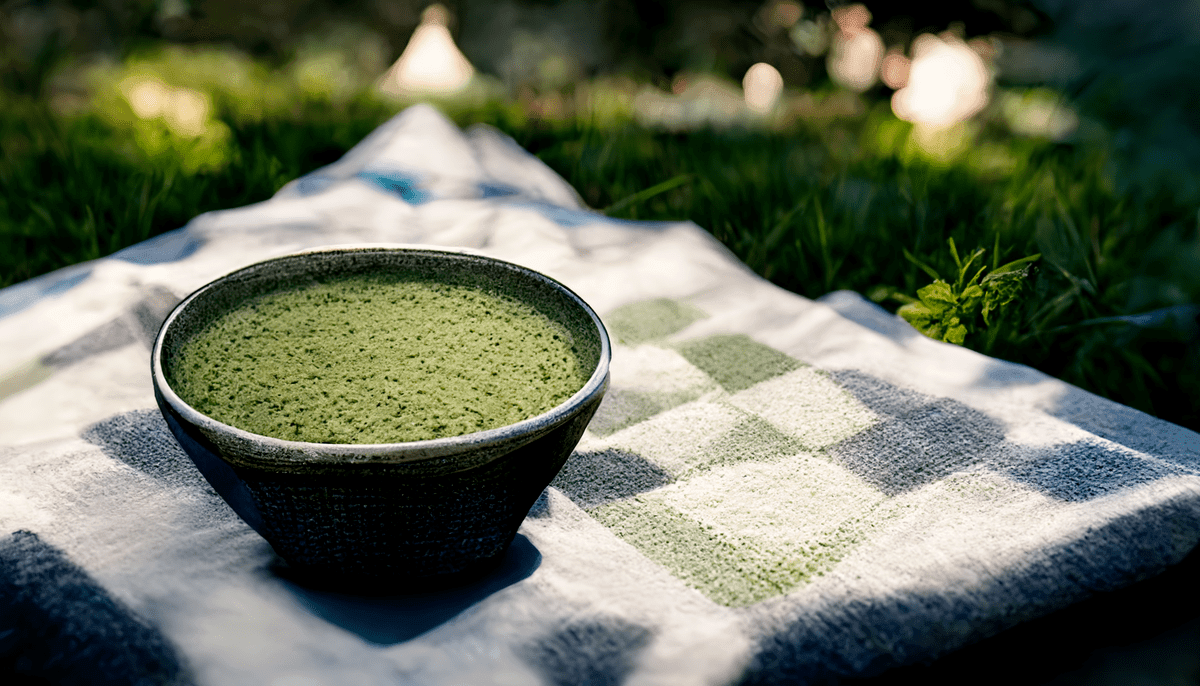What are the benefits of matcha tea?
Matcha tea offers a multitude of health benefits. Its powdered form is rich in vitamins, minerals and antioxidants, and is beneficial for oral health, cardiovascular health, and to improve skin quality and blood circulation. It also helps to eliminate toxins more easily and to restore the acid-base balance of the body. The theanine it contains provides a relaxing effect that helps fight stress and regain serenity.

Table of contents.
A much richer antioxidant power.
Matcha tea is unique in that we consume all of its leaves in powder form. This makes it more nutritious than regular tea, as the nutrients it contains are absorbed in their entirety. Its antioxidants and dietary fiber can help the body to flush out toxins. Antioxidants are important in protecting the body's cells from free radicals, and preventing premature aging and the onset of diseases such as cancer, diabetes, cardiovascular disease and neurodegenerative diseases. These antioxidants in matcha tea neutralize free radicals and help the body repair itself from damage caused by pollution, smoking, UV rays and oxidative stress. The foods we eat are crucial in aiding the process of digestion and toxin elimination. With an antioxidant power 5 times higher than most other superfoods, matcha tea is one of the most recognized foods in the world. It contains many antioxidants, such as catechins with antibacterial, antifungal and antiviral properties, vitamin A, which is essential for vision, and vitamin C, which protects the skin and reduces melanin oxidation. It also reduces the damage caused by time on the DNA, and prevents inflammatory and degenerative diseases, such as Alzheimer's and Parkinson's. Finally, being alkalizing, matcha tea is perfect for stabilizing the acid-base balance of the body.
Excellent for the heart and blood circulation
When the circulatory system is dysfunctional or slows down blood flow, cells have difficulty receiving the oxygen and nutrients they need. These symptoms can, in the long run, have harmful consequences on our health. The presence of EGCG catechins in matcha has a positive impact on the heart and blood system, thanks to its antioxidant, anti-inflammatory and anticoagulant properties. EGCG catechins also contribute to the protection and resistance of the cell walls of the veins. Matcha is also very effective in fighting swelling and poor circulation in the legs, so you can have light and beautiful legs.
A powerful anti-stress and relaxant.
With coffee, caffeine is absorbed quickly by the body, unlike the caffeine in matcha tea associated with tannins which is absorbed more slowly. The caffeine released into the bloodstream will last 6 to 8 hours without a peak in intensity. This provides a smoother, evenly distributed energy that does not cause overexcitement, but rather a relaxing effect that relaxes the brain thanks to the theanine it contains and counterbalances the exciting effect of caffeine. Consumed in reasonable quantities, you will immediately feel more relaxed and in a better mood.
Matcha tea has antibacterial and antifungal properties.
Effective as an internal deodorant, drinking matcha tea helps fight bad breath and even eliminates bad body odor. Scientific research has shown that the catechins in matcha tea have antibacterial and antifungal properties that can be beneficial in treating certain fungal infections and killing most bacteria that can cause food poisoning. Studies have also shown that matcha tea can be used as an internal deodorant and helps fight bad breath and body odor.
The antibacterial and antifungal properties of catechins have been scientifically proven to fight fungus as well as kill most bacteria that can cause food poisoning, such as salmonella and Escherichia coli O-157. In addition, the use of matcha tea as an internal deodorant has been shown to fight bad breath and body odor.
Matcha is good for oral health
In addition to fighting bad breath, matcha tea neutralizes the bacteria responsible for dental plaque. It also effectively helps prevent tooth decay and strengthen enamel thanks to the vitamins and minerals it contains (vitamin K, E, A, C, calcium, magnesium, etc.).
Does matcha give energy?
Yes, it is a stimulating beverage that is just as concentrated in caffeine as coffee. On the other hand, the caffeine associated with the tannins is released into the bloodstream without a peak in intensity.




